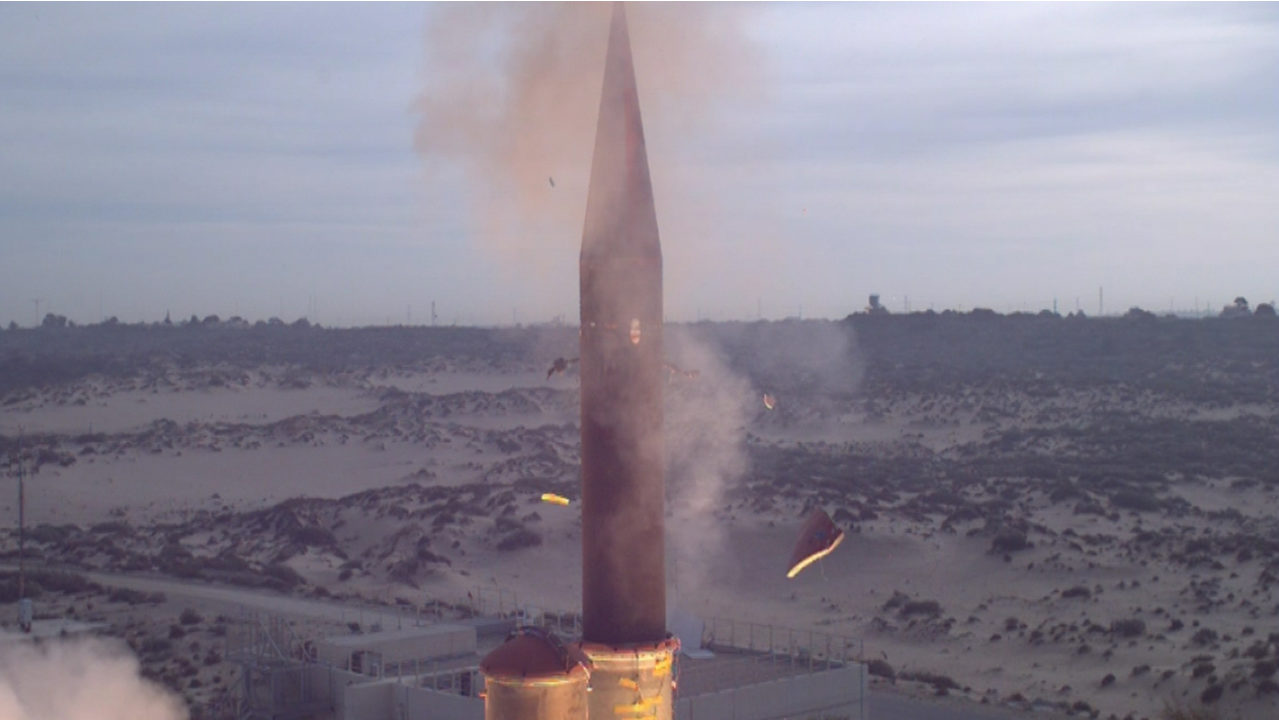As Europe Wakes Up on Defense, Israel Expands Its Market
The Arrow 3 deal, if it materializes, will be the largest Israeli defense export in history, at up to 3 billion euros
Now that 15 European countries have joined the German-led European Sky Shield Initiative, a joint defense system, the likely sale of Israel’s Arrow 3 air defense system to Germany will become the largest defense export in Israeli history, reaching a sum of 3 billion euros.
Jerusalem and Berlin are waiting for Washington to approve the deal; the United States has the right to veto any sale of the Israeli defense system, since the US financed the research and development of the Arrow 3.
The Arrow 3 air defense system, which is produced by Israel Aerospace Industries (IAI), is according to its website “designed to intercept and destroy the newest, longer-range threats, especially those carrying weapons of mass destruction.” Operational since 2017, the Arrow 3 upper-tier defense system is, according to the IAI, “an exo-atmospheric interceptor for long-range threat engagement” which intercepts and destroys threats in the upper atmosphere, far away from their targets.
Dr. Tsilla Hershco, senior research associate at the Begin-Sadat Center for Strategic Studies at Bar-Ilan University, told The Media Line that interest on the part of Germany and other EU member states in the Arrow 3 “stems mainly from the ongoing attack on Ukraine, the significant military losses of the Russians, and the damage to the prestige of Putin’s regime.”
All these issues, she adds, “raise concerns that Putin will use non-conventional weapons such as chemical weapons, nuclear weapons and more.”
Brig. Gen. (res.) Amir Avivi, founder and CEO of the Israel Defense and Security Forum, told The Media Line that Israeli defense industries have always had a market in Europe, but since the Russia-Ukraine war started, “there is that deep understanding among central, eastern and northern European countries that the threat is real, and that big wars are not over.”
As the threat grows, he says, the demand for advanced and proven systems like Arrow 3 is growing as well.
Ilan Zalayat, a geopolitical analyst in Israel, told The Media Line that “the Russian invasion of Ukraine served as a wake-up call for many European countries regarding the seriousness of the persistent threat posed by Moscow, and the lack of capabilities to cope with the Russian attack on their territory.” Therefore, air defense systems were given top priority among European governments. This, he explains, is because it fits both possible scenarios: the most plausible is Russia striking with missiles or drones, which is more likely than a ground offensive, and the more feared scenario is of Russian use of a nuclear weapon, which requires an air carrier.
“The Arrow 3 ballistic missile answers, according to the publications, these threats,” Hershco said.
Israeli air defense has, currently, the top capabilities in the world. Nobody deals with air defense challenges the way Israel has done in the last decade.
The system is considered the best of its kind with an estimated 90% probability of successful interception. This, according to Zalayat, is a critical factor when it comes up against a nuclear warhead. Avivi notes that now there is a huge shift in understanding taking place in European countries which he says have neglected building up their forces for years. “When you decrease your capabilities to such an extent, at the end of the day, it invites aggression,” he said.
Zalayat says that these countries are now investing large sums of money to develop their militaries, seeking to acquire the best defense capabilities, and especially ones that have proved themselves in operation.
“Israeli air defense has, currently, the top capabilities in the world. Nobody deals with air defense challenges the way Israel has done in the last decade,” he said.
If the deal materializes, notes Zalayat, “it will be the largest arms deal in the history of Israeli military industries and, moreover, it will score many points for Israel in the diplomatic arena.”
The equipping of European countries with Israeli technology will create a long-term dependence on Israeli maintenance and training, strengthening their relations with Israel, he believes.
Also, according to Zalayat, “it will portray Israel as part of the European war effort against Russia, mitigating the criticism against Israel’s refraining from arming Ukraine.”
Avivi illustrates two of the benefits that such a deal could bring to Israel.
The first benefit is that it would lower the prices of such systems for the Israeli army. “If the Israeli military industry is producing a capability only for Israel, this means the prices will be much higher,” he notes.
The second benefit, according to Avivi, is that as the military industries earn money it likely will be invested in future research and further development of new defense capabilities. “The more Israel sells, the more it is able to develop new capabilities,” he said.
It will portray Israel as part of the European war effort against Russia, mitigating the criticism against Israel’s refraining from arming Ukraine
The last detail needed in order to complete the deal, is the approval of the United States.
Zalayat says that, due to the sensitive information required to possess and operate the Arrow 3 system, Israel and the US are cautious about selling it to other countries. For Israel, he says, “it is important not to lose this information to its rivals, thus, losing its regional superiority.”
The US on the other hand, he adds, “desires to maintain its military supremacy within NATO.”
For example, he believes that the United States “is probably not enthusiastic about watching Germany’s accelerated military build-up plans over the past year. Therefore, Washington is contemplating the issue.”


